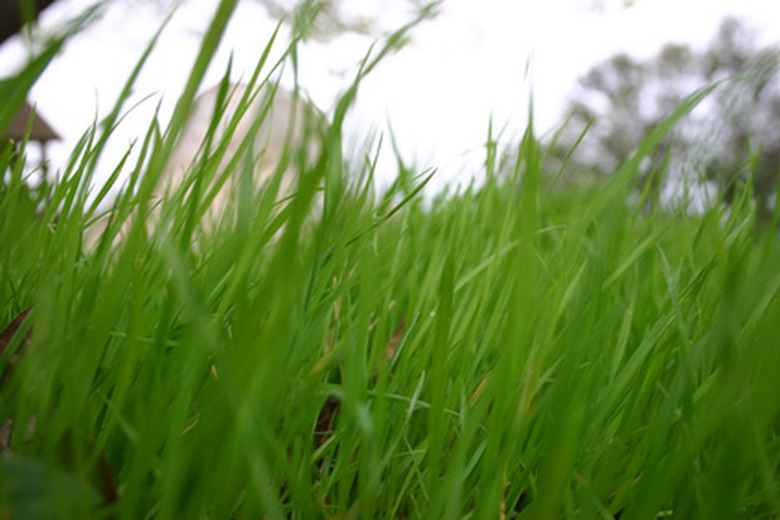Effectiveness Of Ironite Fertilizer
Ironite fertilizer is manufactured in Arizona, using mining byproducts from the Iron King mine. It comes in granular lawn and garden formulas, as well as water-soluble liquids and sprays. The manufacturer claims Ironite fertilizer "greens and grows" better than other fertilizers because it includes minerals and micronutrients, such as iron, that other fertilizers lack.
General Plant Feeding
Ironite fertilizer supplies plants with the basic nutrients for good health, such as nitrogen, phosphorus and potassium. These nutrients are available to plants in a quick-release formula, meaning you will see an improvement in the color and vigor of your plants within days. Water-soluble fertilizers, such as the liquid formulas, are used up rapidly and require frequent reapplication.
Treating Chlorosis
Iron chlorosis is a problem in the alkaline soils of the Western United States, and occurs when alkaline soils bind iron, making it unavailable to plants. Plants suffering from chlorosis have yellow leaves and may eventually die. Ironite fertilizer, according to Star Nursery, provides a temporary fix for iron deficiencies. Water-soluble formulas instantly green up leaves, but the effects last for less than one season. Granular formulas may reduce signs of chlorosis for as much as two to three years.
- Ironite fertilizer is manufactured in Arizona, using mining byproducts from the Iron King mine.
- Water-soluble fertilizers, such as the liquid formulas, are used up rapidly and require frequent reapplication.
Considerations
Treating iron chlorosis through fertilizer treatments is expensive and difficult. A better alternative, according to Star Nursery, is to choose plants that tolerate alkaline soils, water them deeply, but infrequently and amend the soils with compost, peat moss and manure. Ironite fertilizers do not improve the soil, merely providing temporary relief from iron deficiencies.
Warning
Several studies of Ironite fertilizer found that it contains heavy metals, such as arsenic, lead and mercury in sufficient quantities to label it hazardous waste, based on standards set by the federal government, according to Environment California website. Even small amounts of arsenic and lead may be toxic to young children and the product may contaminate soils. Ironite manufacturers claim these metals do not break down into the air or soil and that the product is safe when used as directed. The product has been banned in Canada and several states are considering similar measures.
- Treating iron chlorosis through fertilizer treatments is expensive and difficult.
- Several studies of Ironite fertilizer found that it contains heavy metals, such as arsenic, lead and mercury in sufficient quantities to label it hazardous waste, based on standards set by the federal government, according to Environment California website.
Recommendations
Ironite isn't the only synthetic fertilizer that may contain heavy metals or industrial waste. To green up your lawn and garden, amend soils annually with compost and use an organic fertilizer, such as well-rotted manure, fish emulsion or corn gluten, advises PCC Natural Markets. Avoid weed and feed products that may contain toxic pesticides and herbicides, and organic products that contain municipal waste or sludge, which may also contain heavy metals.
